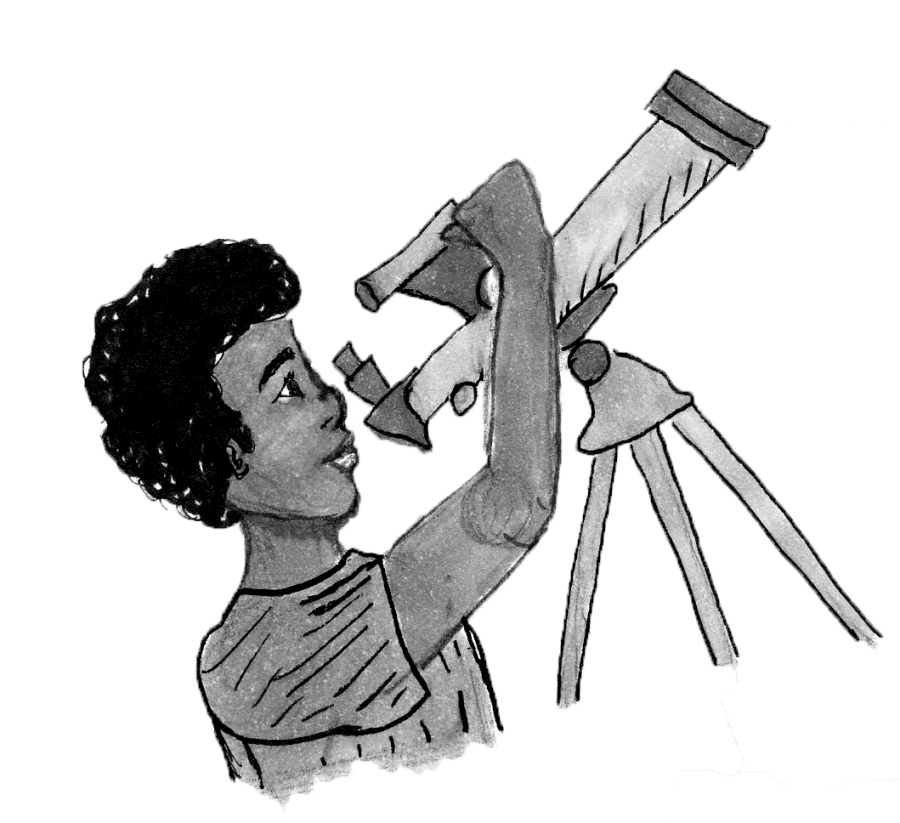Reach for the Stars
Astronomy is coming to Garfield.
It’s almost time to start choosing classes for the next school year and you may find yourself wondering what classes to take. Perhaps you should consider taking astronomy, a brand new science class that would cover all things space-related —the solar system, stars, black holes— you name it.
Let’s clarify that this class is about astronomy, not astrology. Nonetheless, this immersive and interdisciplinary course that incorporates chemistry, physics, biology, and other topics will help explain the space phenomena that fascinate us all.
Chemistry and physics teacher Zachary Shaw has been leading the way for this addition and will be teaching the course. For months, he has been working to make astronomy a real possibility.
Shaw has many reasons for wanting to bring an astronomy class to Garfield. First, he thinks that people, but especially high schoolers, have a profound interest in space. He cited the recent solar eclipse several summers back as an example of public enthusiasm.
“When students bring up space ideas, they tend to get very excited, and I think that reflects the public interest in space,” Shaw said.
Such a course offering would stir a lot of excitement about science, which is one of Shaw’s main goals. Unlike other science courses, astronomy would be more of an exploratory class. For example, if a student wants to learn about comets one day, then the class could spend time learning about that.
“I want to embrace that sense of wonder,” Shaw said.
Shaw also wants to teach this course for another practical reason. Garfield
has many options for those who are willing to commit to an AP science course, but Shaw believes there aren’t enough non-AP science courses available to take.
“One of the things we talk about at school is that we service the high skilled student and we favor that student more,” Shaw said.
Shaw understands that there are various reasons for students to not take up an AP science course, which is why he began working on an astronomy class that would be more accessible to a wider range of students.
“If a student is passionate about science, but they don’t want to necessarily embrace the AP workload for a particular class, then there aren’t a whole lot of options for that student,” Shaw said.
Astronomy will be a great class for those who want to continue learning about science but without the workload usually seen with a typical AP course. Shaw doesn’t want to see these students lose their passion for the sciences just because they choose to not take an AP class.
“The biggest tragedy is that we lose these students. Some end up not taking a science because they don’t see it as something reasonably available to take,” Shaw said.
This course will be open to everyone, so long as they have completed the district-mandated science courses.
This addition would be a first for Garfield, but several other high schools in the Seattle area already offer the course.
Christopher Rose, the astronomy teacher at Roosevelt, just started teaching the course this year after developing a curriculum on his own.
“Other than the weather ruining all of my night sky observation assignments, it has been fun,” said Rose. “We have been doing a unit on ancient astronomy tools which the students have enjoyed building and learning how to use them.”
Rose garnered a lot of student interest for the class and ultimately, over 60 students signed up.
“As with any school, they should offer classes that fit with the interests of the students,” Rose said.
Franklin High School also offers an astronomy class to their students. Student Tess Imanishi opted to take astronomy instead of a more traditional science course because of their interest in the subject.
“I think astronomy class gives a great opportunity to learn more about topics that seem impossible and aren’t talked a lot about in normal classroom settings,” Imanishi said.
This is exactly what Shaw hopes to offer through his course. But most importantly, Shaw hopes to ignite curiosity and enthusiasm in students not just about space, but also science in general.
“At the very base level, I hope to make this a class where students will leave high school with a positive view of science and are advocates of science in their adult and professional lives,” Shaw said.




